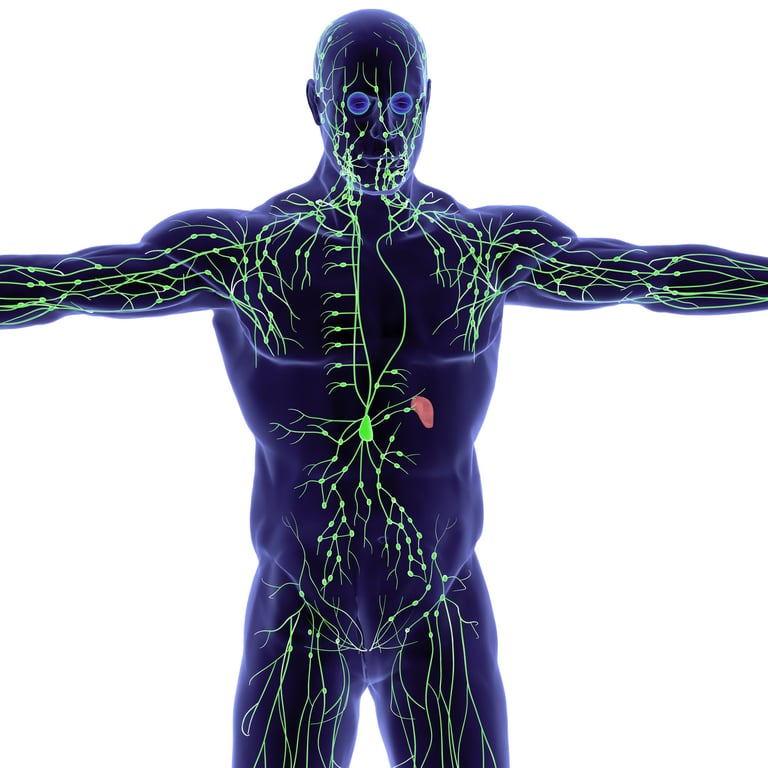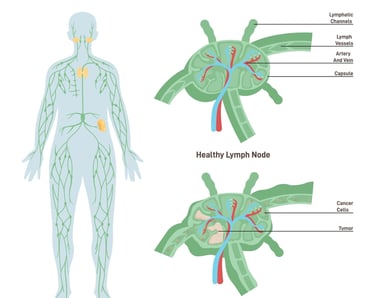Lymph Node Cancers


Lymph node cancers are types of cancer that affect the lymph nodes, which are part of the lymph system. The importance of these cancers comes from the fact that the lymph system performs vital functions such as fighting infections and maintaining fluid balance in the body. The most common lymph node cancers are known as Hodgkin lymphoma and non-Hodgkin lymphoma. These cancers are characterized by abnormal accumulation of lymphocytes in the lymph nodes, spleen, bone marrow, and sometimes blood. Lymphomas can weaken the body's immune system, making it vulnerable to infections and other diseases. Early diagnosis and treatment can significantly improve survival rates and quality of life for lymphoma patients. But the symptoms of lymphomas can often be confused with other more common diseases, making diagnosis difficult. Public awareness about lymphoma and the development of early detection methods are critical in the fight against these types of cancer. Modern treatment methods are constantly improving as research in this field continues and offer promising results for patients.
Lymph node cancers (lymphomas) can be listed as follows:
Hodgkin Lymphoma (Hodgkin's Disease): It is a type of lymphoma characterized by the presence of specific Reed-Sternberg cells. It usually occurs in young adults and older adults.
Non-Hodgkin Lymphoma: It is more common than Hodgkin lymphoma and is divided into many subtypes. This type of cancer arises from abnormal lymphocytes in the lymphoid tissue.
B Cell Lymphomas: The most common type of non-Hodgkin lymphomas. It is caused by abnormal growth of B cells.
T Cell Lymphomas: Caused by abnormal growth of T cells and are a less common type of non-Hodgkin lymphomas.
Burkitt Lymphoma: It is a very aggressive type of non-Hodgkin lymphoma. It is more common in children and requires prompt treatment.
Mantle Cell Lymphoma: It is a less common type of non-Hodgkin lymphoma and usually occurs in middle-aged or older men.
Follicular Lymphoma: It is a type of non-Hodgkin lymphoma that usually progresses slowly and is often diagnosed in adults.
Anaplastic Large Cell Lymphoma: It is an aggressive type of non-Hodgkin lymphoma arising from T cells.
Lymph node cancers can occur in both children and adults and cause a variety of symptoms. Treatment approaches may vary depending on the type and stage of cancer. Early diagnosis is an important factor in lymphoma treatment.



